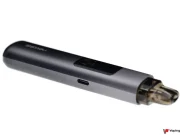The study, Comparative tumor promotion assessment of e-cigarette and cigarettes using the in vitro Bhas 42 cell transformation assay, was conducted by BioReliance, funded by British American Tobacco (BAT) and published on Environmental and Molecular Mutagenesis.
“This is the first time this particular test, the Bhas 42 assay, has been used to compare tobacco and nicotine products,” said lead study author, Dr. Damien Breheny. “It is one of a series of tests being developed and refined by British American Tobacco to compare the relative biological effects of e-cigarettes and tobacco-heating products with conventional cigarettes.”
How many more studies are required to accept these figures as reality?
Similar studies carried out previously, namely the one carried out by Public Health England and the one by BAT, had found that vaping is between 95% and 99% safer than smoking. In line with these studies, data obtained from this latest research found that cigarette smoke has cancer-promoting agents, while e-cigarette vapor does not, hence confirming that e-cigarettes are a safer alternative to their combustible counterparts.




![Recent Conference Urged Nations Worldwide to “Quit [Smoking] Like Sweden”](https://www.vapingpost.com/wp-content/uploads/2024/04/vape-conference-238x178.png)




![Recent Conference Urged Nations Worldwide to “Quit [Smoking] Like Sweden”](https://www.vapingpost.com/wp-content/uploads/2024/04/vape-conference-180x135.png)


